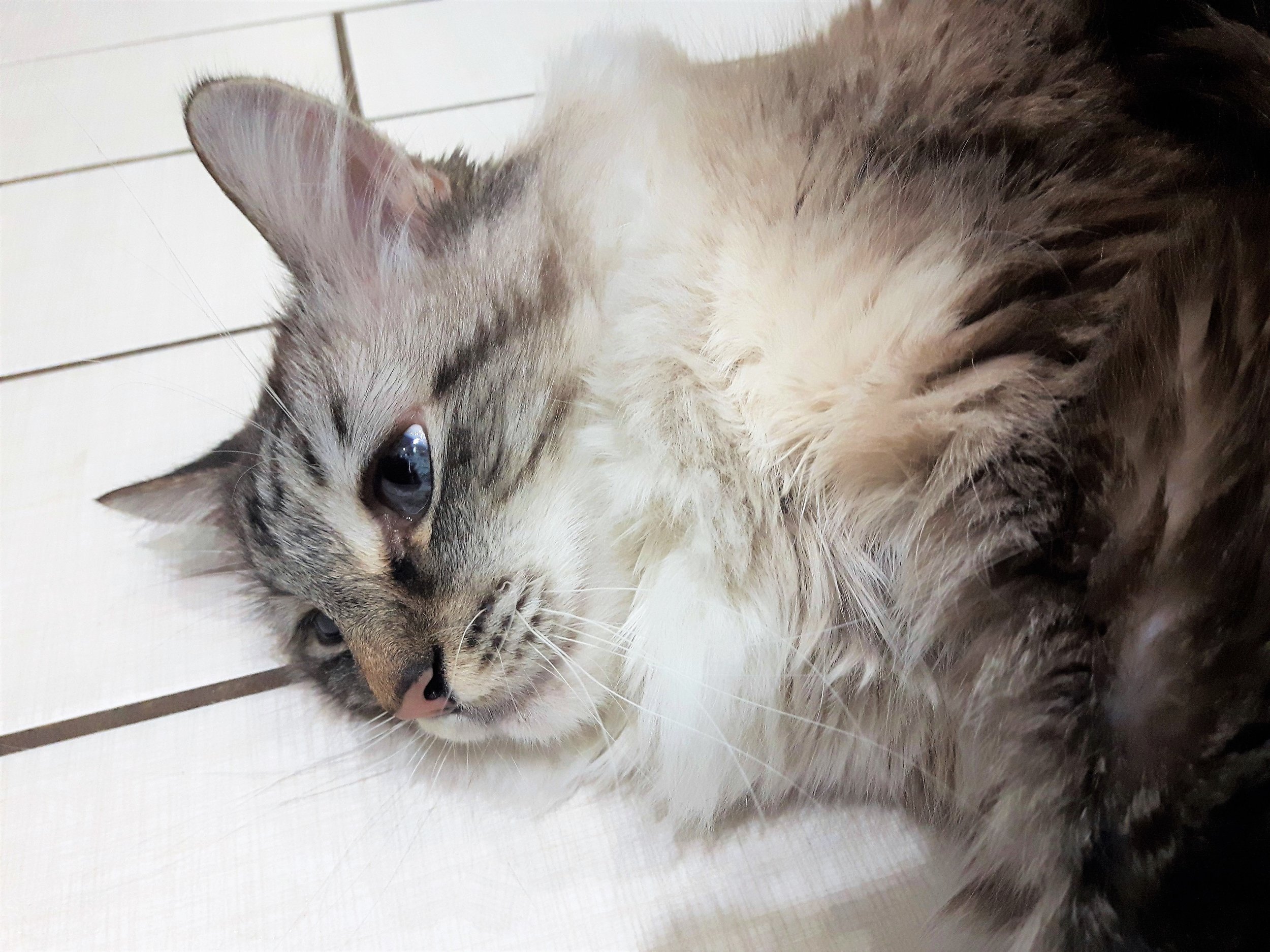The Loss of a Pet is a Potent Teacher
/Up until a sunny afternoon in June I had not experienced the real loss of a member of my household. On that Saturday, we packed the family pet cat into his kennel case for the last time and took him to the vet’s to be put down. We had to face the decision suddenly, and it was a hard pill to get down. I wept in the car and didn’t want to go into the office while my husband took care of the paperwork. The cat and I remained in the air-conditioned vehicle and shared some final alone time moments, just us two, together. That was one of his favourite things. My normally fiery and spicy tempered kitty was docile and quiet. He would normally meow and protest when caged inside the vehicle. I unzipped the front flap of the carrying case and just softly stroked his furry face.
When it was time for his appointment, we entered the examination room with heavy hearts. The vet administered two separate medicine doses. The first was a sedative to calm him. The vet left to give us some time together, and we watched him grow drowsy as we continued to absorb the experience of each other’s company for the last time. When the doctor came back in to administer the second injection of high dose barbiturate to put him to rest, we continued to stroke him. His head lowered. I placed my hands on his back and felt his pulse through my palms. It became weaker and weaker until the pulse that remained was just the one from my own hands. It was startlingly fast. He was gone, just like that.
He came home with us in 2005 as a wild-eyed kitten. He left as a tired, old man. This full lifespan represented over the course of thirteen years makes for a reminder of our own human impermanence.
In fact, nothing at all, other than Divine Essence, is permanent. The highest Self, that all things in this Universe share, transcends the element of time. Soul is beyond past, present, and future. Soul IS all time; it is beyond time.
It can be hard for people to reconcile the concepts of impermanence and mortality with respect to their own lives and the lives of those whom they love.
Abhinivesha is one of the five kleshas, illusory modes of thinking that perpetuate distress, suffering, and continued incarnations on Earth as a soul attempts to work through its issues. Abhinivesha is often referred to as an aversion from death. I prefer a more specific description from the author, Michael Stone, detailed in his book, The Inner Tradition of Yoga.
In this, abhinivesha is described as attachment to a selfish, self-interested and small self-centered existence. This constitutes an attachment to a minute part of a vastly greater, infinitely larger Self, the Self that comprises everything and is beyond time because it is time.
However, identification with the small self is easy for sentient beings to do. We humans often interact with others in the world with phrases that begin with the word “I”. I do this regularly. We claim ownership of things that were arguably never ours to begin with: “This country is mine”. “This is my spot.” When was the last time you had thoughts similar to these? Abhinivesha reflects a “me”-centric worldview. This sort of thinking creates separation, otherness, and tribalism. With the vast majority of people thinking of the “me” most of the time, it’s no wonder the global political climate is the way it currently is.
We are human, and framing the world from our own personal reference points is perfectly natural. However, building recognition of the inherent falsehood of stories centering around a “me” is a powerful practice that can go along with a practice of deep, perhaps even radical acceptance of things simply as they are.
It is understandably difficult to think of an apple, for example, as having the same fundamental Essence and life force in it as that which animates one’s self. It is radically compassionate to see it for what it really is, and not just a piece of fruit for nourishment. The highest Self-form is shared by all things in this Universe. It is what we really are, far beyond transient, small self-labels such as “apple”, “cat”, or “blogger”.
For thirteen years, “my” kitty took an impermanent cat form, but that was never meant to be forever. I can honour the precious, rare blink of time when our souls were here together, and I can also understand that the time for that specific combination of conditions (that cat in that life along with this woman, in this life) has come, gone, and given way to other moments, which are also subject to the laws of impermanence. The sun continues to rise and set; children continue to grow up, grow old, and die.
I’ll continue to soak in the lessons from the experiences we shared with our feline friend. His name while embodied here on Earth with our family was Echo, and he has indelibly left his mark. He’ll continue to reverberate in my heart, and I’m comforted that he has returned to Source.
Bonnie Bridges is a yoga teacher, educator, and mala artist hailing from and living in northern British Columbia, Canada. A Chinese proverb highlights Bonnie’s personal values: “If you are planning for a year, sow rice; if you are planning for a decade, plant trees; if you are planning for a lifetime, educate people.” She herself is an avid, lifelong learner, ever in a state of curiosity, discovery and inquiry.


































